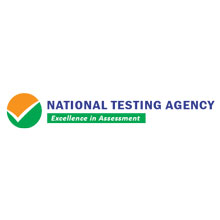What is Business Ethics and Corporate Social Responsibility
Business ethics and corporate social responsibility courses form a niche area within management studies that has gained popularity in recent times. As it represents a highly specialised, yet practical theme it is usually learned by beginners as a part of their management degree programmes. The course has a unique focus that integrates philosophy, legality, management and business principles. It can assist in reorienting business priority and developing a holistic understanding of the role of businesses in society.
Business ethics and corporate social responsibility courses are available as separate areas or jointly. Business ethics is also termed as corporate ethics. Hence, there are many courses that look at corporate ethics and social responsibility that also fall into this category. The programmes at undergraduate and graduate levels are general courses that allow for limited specialisation. In research programmes candidates can choose to study aspects of business ethics and corporate social responsibility hence allowing for very specific specialisation. Highlights of this area are the availability of business ethics and corporate social responsibility short term courses. These can be certificate or diploma courses offered by reputed institutions and training institutes.
Business Ethics and Corporate Social Responsibility Course Highlights
Particulars | Specifications |
Course Type | Certificate, Diploma, UG, PG, Doctoral Level |
Admission Process | Entrance exams and academic qualifications |
Duration of the program | UG- 4 years PG- 1-2 years |
Average course fee | Range from Rs. 6,500 - Rs 30,00,000 |
Average Salary (per month) | Around Rs. 20,000 to Rs 50,00,000 |
Career Options | CEO, Financial and Equity Consultant, Manager, Board Member, CSR Managers, CSR Head, Programme Officer Legal Officer, Talent Acquisition, Professor, Lecturer, Research Associate/Analyst, Research Assistant in a Project, Business ethics and corporate social responsibility Consultant, Head of NGO, Entrepreneur |
BCSR Courses: Degrees and levels (UG/PG)
There are two levels of pursuing business ethics and corporate social responsibility specialisation, one is through short term programmes and other though traditional higher education channels. Both, as offered by well-recognized management colleges in India, are explored below:
Business Ethics and Corporate Social responsibility Certificate Programmes: Business ethics and corporate social responsibility certificate programmes are specialised short term programmes that tailor-made for management professionals and researchers. These offer an exploration of topics in business ethics and corporate social responsibility either separately or jointly along with industry experts and case studies. Many Massive Open Online Courses (MOOCS) are also available on these topics. These are suitable for practitioners who want to include or improve business ethics and corporate social responsibility practices of their enterprise. It is important for the candidate to do certificate programmes offered by reputed national and international institutions.
Business Ethics and Corporate Social Responsibility Diploma: Diploma offers a medium-term rigorous engagement in the area, exploring the theory, different practices, trends and challenges. These are recommended for candidates who wish to engage solely in the area as consultants and CSR managers and also to those aspiring to become higher-level managers.
Programmes at Undergraduate Levels: Business ethics and corporate social responsibility undergraduate programmes is a component of most management and commerce courses. Following are the possible undergraduate programmes you can pursue.
Bachelor of Business Management (BBM),
Bachelor of Business Administration (BBA)
However, at undergraduate levels, you can take any program of your choice, ranging from social sciences to economics to engineering to sciences if you want business ethics and corporate social responsibility career. If you would like to pursue an MBA, it is advisable that you do a course which has a significant quantitative component.
At the postgraduate level, you can do the following courses
Master of Business Administration (MBA)
Masters (M.Sc) in Management
MBA is the most popular programme for post-graduation. These programmes have special business ethics and corporate social responsibility courses integrated into their core curriculum.
Research Programmes in BECSR
Master of Philosophy (M.Phil) in Management
Master of Science by Research (M.S) in Management
Doctor of Philosophy (PhD) in Management
All three programmes allow you to select business ethics and corporate social responsibility research specialization in your research. You can have a singular focus on either business ethics research or corporate social responsibility research, or you can have both together as your area of research. Research programmes give you the opportunity to do real-world case studies and analysis in association with any corporate, a general study on trends, or a philosophical study into the themes.
Minimum and Maximum Duration of Business Ethics and Corporate Social Responsibility Courses
Programmes in business ethics and corporate social responsibility have minimum duration specific to their nature. Very short term certificate programmes can be of one week or less. MOOCs are generally of the four/eight/twelve-week format. Diploma courses have a minimum duration of three to four months. Bachelors in management and commerce are needed three years at minimum to complete the course. MBA needs a minimum of two years in India. Masters programmes can also be for one year. Research masters can be completed in two years and in three years by very disciplined scholars.
Certificate programmes and MOOCs can only be completed in the specified duration. They have no possibility of extending the time. Bachelor's degrees can have a maximum duration of 5 years in case of regular programmes, and 6 years for distant learning. , can vary across universities. At the masters level, the maximum duration can last up to 5 years, particularly in research programmes. The maximum duration of a PhD programme is 6 years.
Eligibility Criteria (UG & PG) of Business Ethics and Corporate Social Responsibility
Certificate and diploma programmes in business ethics and corporate social responsibility are mostly open to everyone. While MOOCs have minimal eligibility requirements, few certificate programmes are restricted to only professionals and researchers with significant experience in the field.
Eligibility criteria for master’s in business ethics and corporate social responsibility include obtaining at least 55% marks in the undergraduate programme. Students can apply if they have completed their undergraduate study or will be completing it in time for the master’s admission. Students from SC/ST/OBC (Non-Creamy Layer) categories and differently-able students are given 5% relaxation, i.e., they need a minimum of 50% marks at the undergraduate level.
Admission to PhD programs has an eligibility criterion of a minimum of 55% marks in a master’s degree BECSR course or in a post-graduate diploma course. Reserved category students can avail 5% relaxation on this. Students of professional courses such as CA, CS, and CMA are also eligible for admission in PhD BECSR. Students with a B.Tech degree and a CGPA of above 6.5 can directly apply for PhD.
Business Ethics and Corporate Social Responsibility Admission
Entrance Examinations for BECSR Courses after Class 12th
Business ethics and corporate social responsibility admission to certificate and diploma programmes do not have entrance examinations. However, depending on the number of seats available in certificate programmes screening processes such as interview, application, may be used.
Undergraduate admission in management generally does not have entrance exams requirements. However, this can vary depending on the university and if you choose to do other disciplines. Post Graduate and doctoral programmes have entrance exams. Common Aptitude Test (CAT), GRE, GMAT, GATE and UGC-NET/JRF are the common exams.
Fees and Expenses for Studying Business Ethics and Corporate Social Responsibility
Business ethics and corporate social responsibility course fee range for various levels are as follows:
Certificate Programmes: Fees is in the range of Rs. 6500/- to Rs. 2,00,000/-. This wide range is due to the targeted audiences of the programmes can vary widely from students to senior managers. MOOCs can have fees starting from Rs. 1000/- to Rs. 3400/-. There are scholarships available on certain platforms.
Diploma: Diploma Course fees start at Rs. 20,000/-
Undergraduate Level: Bachelors fees are dependent on the particular course undertaken and the university/institution. This can cost you between Rs. 55,000/- to Rs. 3,50,000/- on an average. You can also do bachelors through distance mode which have a fee of Rs. 9,000/-
Masters Level: Masters programs in Management are among the most expensive. These can cost between Rs. 90,000/- to 30,00,000/-. Specialized programmes can cost as much as Rs. 30,00,000 for one year of study.
Research and Doctoral Level: Research programmes generally have fewer fees as compared to academic programmes. Most institutions do not have tuition fees for PhD programmes and also give generous stipends ranging from Rs. 30,000/- to Rs. 35,000/- per month to the scholars. Masters and PhD programs have fees ranging from Rs. 20,000/- to Rs. 9,00,000/-.
College Predictors VIEW ALL
Scope of Business Ethics and Corporate Social Responsibility in India and Abroad
Emerging social and ethical consciousness among businesses has expanded opportunities for business ethics and corporate social responsibility professionals globally. It is important to note that business ethics and corporate social responsibility is an additional specialisation above the professional training of the individuals. These courses are designed to give individual skills and insights that help in their managerial tasks and decision making. The course also enables leaders who want to reorient their businesses’ goals and policies to get exposure to best practices. It has a practical orientation, founded upon theories, that helps in the way of learning. So, no matter whether you choose to join the corporate bandwagon or join your family business or dream to start your own venture, BECSR course knowledge will help you grow as a better professional and leader.
Research is also a growing sub-field in Business Ethics and Corporate Social Responsibility that integrates many aspects of behavioural studies, economics, ethics and management. This is a promising field with further scope in undertaking quantitative analysis and impact measurements, not only in India but also abroad. There are many emerging prospects in CSR management that different organisations and individuals can leverage and grow.
Resource Links for Online MBA
Course Fees Business Ethics and Corporate Social Responsibility
| Minimum Fees | Maximum Fees | |||
|---|---|---|---|---|
| Private | Government | Private | Government | |
| PG | ||||
| DOCTORAL | ||||
| DIPLOMA | ||||
Course Subjects
While there are limited course subjects in business ethics and corporate social responsibility programmes, below are common themes that these courses look into:
Corporate Ethics
Governance and Corporate Social Responsibility
Ethical Business and Social Responsibility
Ethical Challenges Finance, Marketing and Advertising.
The Foundations of Business Ethics
CSR in cultural contexts
People, environment and efficiency
Social and Individual Ethics
Legal and Regulatory framework for CSR
Theories of Morality and Ethics
The interrelationship between business and environmental sustainability
However, one must note that the above list is a suggestive one to give you an idea of the subjects taught in Business Ethics and Corporate Social Responsibility courses. The actual syllabus may vary from one institute to another.
Careers in Business Ethics and Corporate Social Responsibility
Business ethics and corporate social responsibility careers are not just job profiles for those qualified in the area, but also those who will benefit from academic engagement in the programme.
Senior/High-level managers, CEOs, professional advisors, CSR consultants, researchers in management and corporate behaviour, instructors in various academic programmes in management are the different verticals where candidates after completing Business ethics and corporate social responsibility course from a reputed institute can expect to get a job in.
Upcoming trends
Business Ethics and Corporate Social Responsibility if viewed separately have become two important buzzwords in the world of business today. CSR, especially, has evolved over the years to become an integral part of the value chain in each industry. It is no more viewed as a separate task or commitment towards philanthropic activities like before. Now it includes everything from employee volunteerism, disaster response, cause marketing, non-profit board service, and peer-to-peer fundraising to philanthropy with the term “strategic” added to each of them. In other words, CSR is now a part of an organization’s core practices and offerings.
At the beginning of 2020, the doyens of the corporate world and analysts had predicted some trends in CSR. Those were as follows:
The focus will be on Environmental, Social and Governance
There will be an increase in the use of renewables and green technology will take the centre-stage
More transparency will be there in the processes
Employee activism will get a new meaning
The focus will be on the impact on a larger scale
Global companies will act ‘local’
There will be more diversity and inclusion
However, the present pandemic situation caused by the spread of COVID-19 has changed the world for good. Now, new rules are being set and the field of Business Ethics and Corporate Social Responsibility will not remain unimpacted.
Job Profiles and Top Recruiters
Following are some of the coveted job profiles that a student passing out from a reputed B-school offering Business ethics and corporate social responsibility course can apply for and expect to get:
CEO: Chief Executive officer leads the company in all aspects of its management. They are the highest-ranking decision-makers.
Financial and Equity Consultant: They prepare plans for investments, savings management and portfolio management for their clients.
Manager: Different levels of managers execute day-to-day activities and are responsible for the personnel under them.
Board Member: Representative of shareholders, supervising the activities of corporates or organisation. They are the highest approval authorities.
CSR Managers: Responsible for planning, and implementing CSR initiatives of corporates.
CSR Head: Lead the CSR activities of organisations.
Programme Officer: Officers tasked with leading CSR programmes and projects in CSR trusts, Non-Governmental Organisations (NGOs), and other organisations working with corporates. They take care of all round planning, from conception, budgeting, and getting approvals to execution of such projects.
Legal Officer: Handle legal and ethical requirements, compliance and monitor all legal affairs of organisations
Talent Acquisition: Responsible for identifying and hiring skilled personnel for the organisation.
Professor: Professors undertake teaching and research in the set up of universities, management colleges and similar academic-cum-research institutions offering BECSR courses.
Research Associate/Analyst: These are salaried positions within research, consultancy and advocacy organisations. Roles involve undertaking research, data analysis and coming up with policy/implementation suggestions and execution, while working on different projects of the organisations.
Research Assistant: These are short-term positions within an ongoing research project. They may be in universities under professors affiliated to universities, other research organisations, labs, and more.
Business ethics and corporate social responsibility Consultant: Persons providing professional advice, often after undertaking detailed problem identification research in areas of ethics and CSR.
Head of NGO: Leading, managing and organising role in an NGO.
Entrepreneur: Persons starting and leading a business venture.
Business ethics and corporate social responsibility courses offer a unique mix of philosophy, legality, ethics, management and business perspectives that are geared to benefit entrepreneurs, managers, business leaders and academicians to understand the social and ethical contexts of the corporate world. While undergraduate and graduate education offers limited specialisation in this area, candidates can choose to undertake research or do certificate and diploma courses to gain insights into the topics. The course will benefit practising professionals and academicians to a very great extent.
Average Salary
Business ethics and corporate social responsibility salary are dependent on other qualifications the individual has. The beginner’s salary in different posts can range from Rs. 20,000/- Rs. 2,00,000/- per month. For persons engaged in senior levels of management, total salary with other benefits can exceed these.
Required Skillset for Business Ethics and Corporate Social Responsibility
Following skills are required to excel as a top executive in the corporate sector in the Business Ethics and Corporate Social Responsibility domain:
Critical Thinking: Ability to bring all aspects of a problem together, organise them logically, evaluate them for decision making.
Design thinking: To think empathically about problems and design solutions for issues.
Communication, Presentation and Writing: Communicate with different levels of management, employees, investors and other stakeholders. Making summary reports of projects, proposals and presentations and communicating them to stakeholders effectively.
Empathy: Ability to think about another’s situation in their perspective.
Course Curriculum for Business Ethics and Corporate Social Responsibility
Business ethics and corporate social responsibility curriculum focus on relevant theoretical foregrounding of practices, philosophical explanations and critical examination of challenges. It includes the examination of key business practices and processes and their social implications to help students and learners bring in elements of business ethics and corporate social responsibility into practice.
To understand the curriculum better, one must have an idea of these two concepts, in the first place:
What is Business Ethics? What is Corporate Social Responsibility?
Business Ethics and Corporate Social Responsibility are practised with high traction in the corporate world today. In simple terms, business ethics are values and standards that determine the right conduct for business decisions and actions. Society plays an integral role in making possible the business operations, be it through providing an educated workforce, environmental conditions, a social and political setting conducive to its operations. Corporate Social Responsibility or CSR is the idea that these corporates must give back to society for availing these benefits. CSR directs the interests of business beyond its immediate motives of profits, market share or sales turnover, thereby establishing healthy links with the society.
It has now become essential for entrepreneurs, managers and business leaders to understand and practice these. Business ethics and corporate social responsibility courses and programmes of different duration are available for professionals to develop a rigorous understanding of these practices. To become a business ethics and corporate social responsibility professional there is no predetermined path that you can take. This will help you understand different ways that you can follow to become a business ethics and corporate social responsibility practitioner and why you must follow such a multi-disciplinary curriculum in your UG and PG levels.
Students also liked
Popular Business Ethics and Corporate Social Responsibility Entrance Exams in India
IELTS
Exam Date: 20 Dec, 2025

































